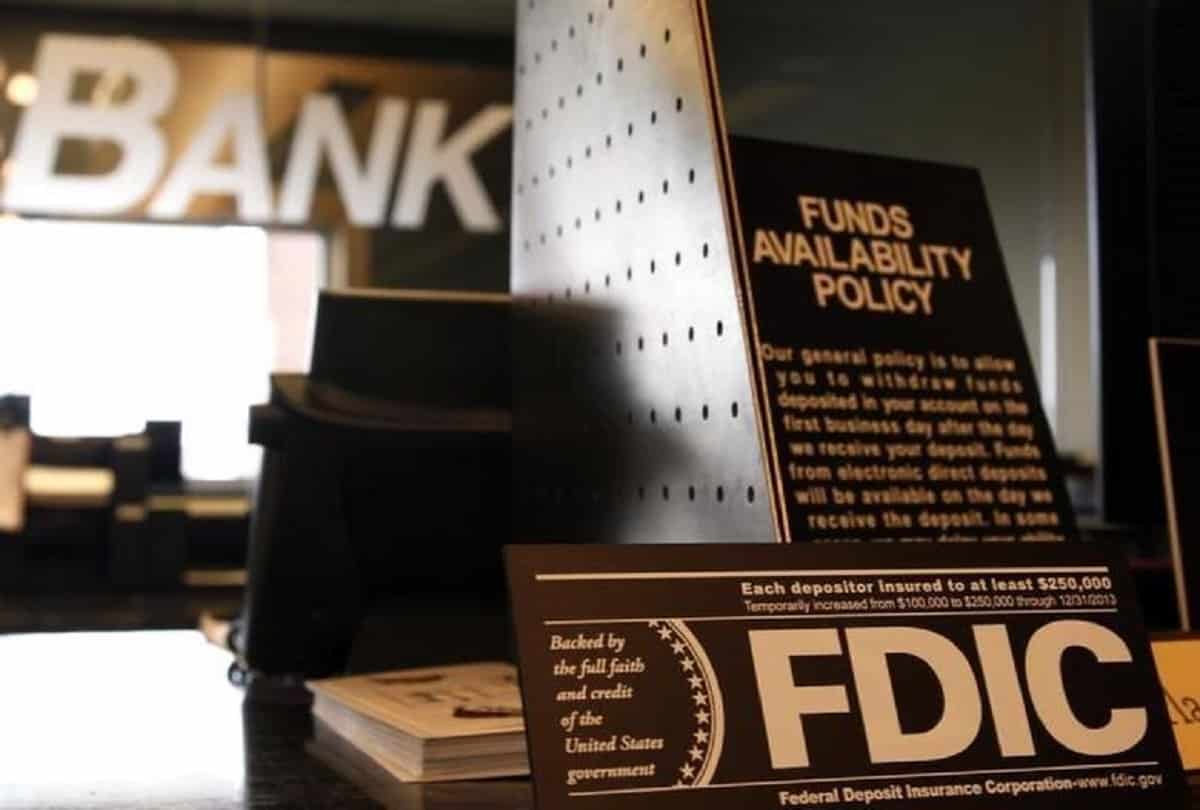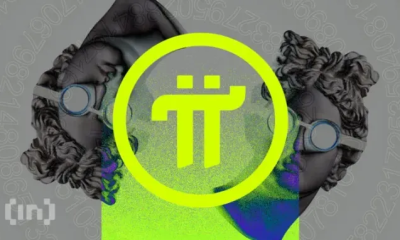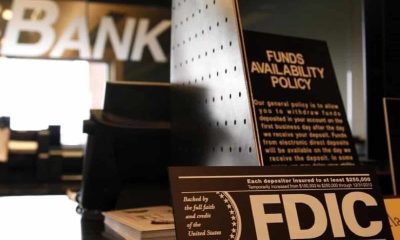Regulation
Pro-XRP Lawyer John Deaton Calls for End To SEC Crypto Wars

Pro-XRP Lawyer John E. Deaton has urged for an end to the “crypto wars” led by the U.S. Securities and Exchange Commission (SEC). Deaton’s statement follows a series of high-profile legal battles involving major entities such as Ripple, LBRY, Coinbase, and others, which he argues have consumed substantial resources without addressing substantive fraud.
John Deaton Urges US Regulators to Drop Ongoing Crypto Cases
In a lengthy post on X, John Deaton, an attorney known for his support of Ripple and other crypto companies, vocalized his frustration with the ongoing regulatory actions by the US SEC. Deaton highlighted several cases where crypto companies have faced legal challenges and financial burdens despite not being accused of fraud. He argued that these cases have drained company resources and impacted the crypto industry negatively.
Additionally, John Deaton pointed out several instances where companies incurred substantial losses due to legal battles with the Securities and Exchange Commission. Notably, he mentioned that Ripple had spent over $150 million on legal fees in a case that did not involve any fraud allegations.
This situation has affected Ripple’s operations and influenced its partnerships and market activities, with consequences for XRP holders.
The Pro-XRP Lawyer added,
“Having filed amicus briefs in the Ripple, LBRY, and Coinbase cases, representing users, developers, individual investors, and content providers, I’m sitting here thinking about the incredible waste of time, energy, money, and resources wasted during the last 4 years.”
Despite John Deaton’s call for a reduction in aggressive SEC actions, the regulator continues its strict oversight. Recently, the US SEC sued Digital Currency Group, citing failure to disclose risks tied to Three Arrows Capital, resulting in a $38 million settlement.
Impact on Companies and Innovation
Further illustrating the impact of US SEC actions, Deaton referenced the case of LBRY, a platform that was shut down by the SEC without any fraud charges. The closure led to job losses and financial setbacks for its founder, Jeremy Kauffman.
John Deaton emphasized,
“NO FRAUD was committed or even alleged. There was a very active LBRY community and ecosystem of users and content providers utilizing the platform. LBRY employees lost jobs. An American entrepreneur, Jeremy Kauffman, lost millions due to legal fees.”
Additionally, despite Kraken’s attempt to settle by paying a $30M fine, the platform faced subsequent lawsuits, showing a pattern of aggressive regulatory pursuits. According to the Pro-XRP Lawyer, these moves threaten innovation and the growth of the crypto sector.
Reevaluation of SEC’s Approach To Crypto Regulations
John Deaton’s appeals reflect a growing concern within the crypto community about how the US SEC handles cryptocurrency regulations. The legal expert suggests that a balanced approach would support the development of the crypto industry and uphold the integrity of regulatory practices.
In addition, other crypto leaders have also voiced their perspectives as Gary Gensler departs from the Securities and Exchange Commission. Most recently, Ripple CLO Stuart Alderoty openly mocked Gensler’s exit, signaling a potentially transformative shift in SEC’s crypto enforcement.
Despite criticism from figures like John Deaton, outgoing Securities and Exchange Commission Chair Gary Gensler insists on the necessity of strict regulatory oversight for the crypto market. He emphasizes the importance of enforcement actions to safeguard investors from risks in the crypto industry.
Disclaimer: The presented content may include the personal opinion of the author and is subject to market condition. Do your market research before investing in cryptocurrencies. The author or the publication does not hold any responsibility for your personal financial loss.
Regulation
US SEC Drops Charges Against Hawk Tuah Girl Hailey Welch

Hawk Tuah girl Hailey Welch, known for her association with the controversial $HAWK token, has been cleared of any wrongdoing after a lengthy investigation by the U.S. Securities and Exchange Commission (SEC). The SEC has decided not to press charges against Welch in connection with the rapid rise and subsequent collapse of the meme-based cryptocurrency.
US SEC Investigation Into Hawk Tuah Girl Concludes Without Charges
The SEC had launched an investigation into the $HAWK token after its dramatic price drop. The token, which was linked to Welch’s viral persona, initially saw a market cap surge to $490 million before crashing by over 90%. Investors who were impacted by the crash filed a lawsuit against those behind the project, alleging that the coin had been promoted and sold without proper registration.
Hawk Tuah girl Hailey Welch, who cooperated fully with the investigation, expressed relief after the SEC’s decision. “For the past few months, I’ve been cooperating with all the authorities and attorneys, and finally, that work is complete,” Welch told TMZ.
Her attorney, James Sallah, confirmed that the SEC had closed the case without any findings against her, adding that there would be no monetary sanctions or restrictions on Welch’s future involvement in cryptocurrency or securities.
This Is A Developing News, Please Check Back For More
Disclaimer: The presented content may include the personal opinion of the author and is subject to market condition. Do your market research before investing in cryptocurrencies. The author or the publication does not hold any responsibility for your personal financial loss.
Regulation
Sonic Labs To Abandon Plans For Algorithmic USD Stablecoin, Here’s Why

Barely a week after hinting at launching an algorithmic USD stablecoin, Sonic Labs is shuttering its plans. Sonic Labs co-founder Andre Cronje revealed that incoming stablecoin regulation in the US contributes to the change of stance.
Sonic Labs Makes U-Turn Over Algorithmic USD Stablecoin
In mid-March, Sonic Labs disclosed plans for a yield-generating algorithmic stablecoin for its blockchain. However, new developments in the US regulatory landscape are forcing the company to ditch its algorithmic stablecoin ambitions.
Sonic Labs co-founder Andre Cronje confirmed the change in direction via an X post following the release of the full draft of the STABLE Act by Congress for clearer oversight. According to the text, lawmakers are pushing for a two-year moratorium on algorithmic stablecoin, souring Sonic Labs plans.
Unlike mainstream stablecoins backed by fiat or other commodities, algorithmic stablecoins rely on smart contracts to maintain their peg. The 2022 implosion of Terra’s ecosystem following the de-pegging of its TerraUSD (UST) algorithmic stablecoin stunned regulators.
“We will no longer be releasing a USD-based algorithmic stablecoin,” said Cronje.
In a light-hearted note, community members teased potential strategies for Sonic Labs to sidestep incoming stablecoin regulation. Apart from the loophole of launching the algorithmic stablecoin before the regulation goes live, Cronje teased an algorithmic dirham that will be denominated in USD.
Industry Players Are Bracing For New Stablecoin Regulations
Stablecoin issuers are steeling themselves for incoming stablecoin regulations in the US. While the GENIUS Act and STABLE Act continue to inch forward, there are common denominators in both bills.
For starters, there is the requirement for equivalent reserves at a 1:1 ratio with both bills steering clear of algorithmic stablecoins. The White House is favoring the GENIUS Act over the STABLE Act as lobbyists rally to stifle the possibility of a Conference Committee.
Authorities are targeting stablecoin regulation to reach Trump in two months as issuers jostle for position. Tether, Circle, and Ripple are staking their claims to lead the US government’s ambitions to rely on stablecoins to maintain the dollar’s dominance.
Disclaimer: The presented content may include the personal opinion of the author and is subject to market condition. Do your market research before investing in cryptocurrencies. The author or the publication does not hold any responsibility for your personal financial loss.
Regulation
FDIC Revises Crypto Guidelines Allowing Banks To Enter Digital Assets

The Federal Deposit Insurance Corporation (FDIC) has updated its guidelines, enabling banks to engage in cryptocurrency-related activities without seeking prior approval. This new policy shift signals a change in the FDIC’s approach to the growing role of digital assets in the banking sector.
New FDIC Guidelines on Crypto-Related Activities
The FDIC has issued a new Financial Institution Letter (FIL-7-2025), which provides updated guidance for banks looking to engage in cryptocurrency activities. The new guidance rescinds the previous policy set out in FIL-16-2022, which required banks to notify the FDIC before engaging in such activities.
Under the new rules, banks can now participate in permissible crypto-related activities without waiting for FDIC approval, as long as they manage the risks appropriately.
This change is seen as a shift in the FDIC’s stance, following the agency’s earlier stance that required prior approval for crypto engagements. FDIC Acting Chairman Travis Hill expressed that this new approach aims to establish a more consistent framework for banks to explore and adopt emerging technologies like crypto-assets and blockchain.
“With today’s action, the FDIC is turning the page on the flawed approach of the past three years,” said Hill in a statement.
This Is A Developing News, Please Check Back For More
Disclaimer: The presented content may include the personal opinion of the author and is subject to market condition. Do your market research before investing in cryptocurrencies. The author or the publication does not hold any responsibility for your personal financial loss.
-

 Market21 hours ago
Market21 hours agoWhy BTC Price Stayed Unchanged
-

 Market20 hours ago
Market20 hours agoBitcoin Price Stalls at $88K—Can Bulls Overcome Key Resistance?
-

 Bitcoin24 hours ago
Bitcoin24 hours agoBitcoin Bet Grows Bigger: The Blockchain Group Snaps Up 580 BTC
-

 Market23 hours ago
Market23 hours agoHyperLiquid Responds to JELLY Crisis Amid Community Backlash
-

 Market22 hours ago
Market22 hours agoBinance Alpha Lists Ghibli Meme Coins Amid ChatGPT Hype
-

 Altcoin22 hours ago
Altcoin22 hours agoDogecoin Cup And Handle Pattern Signals Recovery To $0.4, Here’s How
-

 Market19 hours ago
Market19 hours agoPi Network Integrates With Telegram’s Crypto Wallet
-

 Market18 hours ago
Market18 hours agoEthereum Price Struggles—Is Another Breakdown on The Horizon?




















✓ Share: